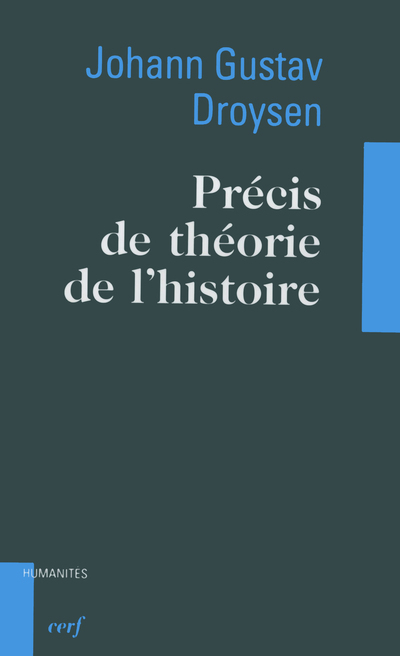En reliant la liberté éthique (Kant) à l'effectivité historique (Hegel), Droysen serait-il le " chaînon manquant " qui permette de lire l'histoire comme un accomplissement de l'idée d'humanité ? Selon lui, l'histoire ne devient intelligible que si elle peut communiquer les traces de la liberté qui s'y est manifestée. Droysen s'inscrit ainsi dans cette lignée qui, après Kant, conduit de Humboldt à Dilthey, Max Weber et Habermas. Élève de August Boeckh et de Hegel, à la fois philologue classique et historien, Johann Gustav Droysen (1808-1884) est l'un des grands théoriciens de la science historique. Par rapport à l'école de Ranke pour qui " l'histoire c'est dire comment les choses se sont passées ", Droysen tient une position de franc-tireur, avec cette thèse provocatrice : " La science historique n'a pas pour mission d'établir des faits historiques. " -- By associating ethical liberty (Kant) to historical effectivity (Hegel), could Droysen be the 'missing link' that allows us to see, in history, the accomplishment of the idea of humanity? According to him, history only becomes intelligible if it can communicate the traces of freedom that lie within. Droysen belongs in the lineage that, after Kant, leads from Humboldt to Dilthey, Max Weber and Habermas. A student of August Boeckh and Hegel, philologist and historian, Johann Gustav Droysen (1808 " 1884) is one of the great theoreticians of historical science. In relation to the school of Ranke, ('history is saying how things happened'), Droysen appears as a rebel, with his contentious theory: 'The mission of historical science is not to establish historical facts'.




